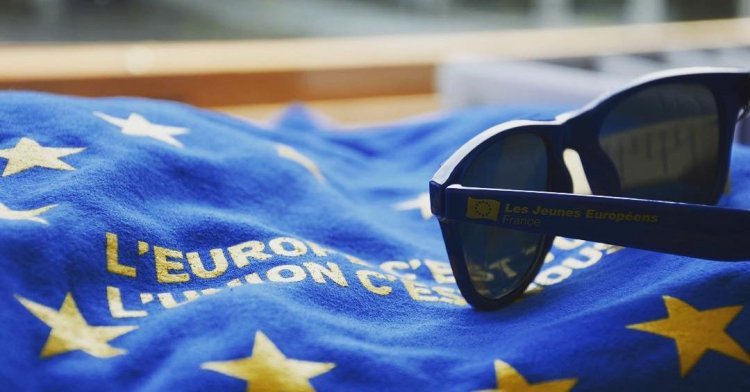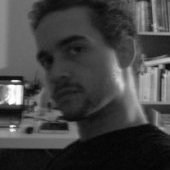Co-founder, in 2010, and co-leader of People’s Freedom Party [1], Vladimir Milov doesn’t surprise only because he’s 39, handsome and well-spoken. His project to lead the party in December 2011 general elections, but also in the next presidential elections in March 2012 astonish as well.
Since he has quit, in 2001, from his position as deputy Minister of Energy from the Kassianov government (his plan to restructure Gazprom had been rejected by Putin), V. Milov is often in the front line of the opposition. In the aftermath of the March local and regional elections and in the turmoil of the speculation over the possible battle between V. Putin and his “heir apparent” D. Medvedev, he has been working for getting the opposition united and trying to break with the approach authorities have until now adopted, as they were obsessed with the idea of reinstating “the country’s greatness”. V. Milov presents us here an alternative Russia, whose progress and prosperity should be based on its people, and not the hydrocarbon.
1) How are you going to proceed, or already did, in order to unite the opposition? What opposition are we actually talking about, if you are calling for “liberal nationalism”? And, moreover, can we talk of a liberal fashion [2]?
Just a year ago, in late Spring – early Summer 2010, Russian opposition was frustrated and split around the issue of participation in the upcoming 2011-2012 parliamentary and presidential elections. A lot of opposition figures claimed that participation in the elections “did not make sense”, that the elections “will be falsified anyway”, at the same time not offering any viable alternative what to do. I believe it is my “Democratic choice” movement which should be credited for a breakthrough – we had organized a conference on participation of the Russian liberal democrats in the 2011-2012 elections cycle (the conference was held in Moscow on June 15th, 2010), which had resulted in initial negotiations on forming a coalition for upcoming elections with Vladimir Ryzhkov, Sergey Aleksashenko and Irina Yasina [3]. Later, Boris Nemtsov and Mikhail Kasyanov [4] had joined what became the new Coalition “For Russia without tyranny and corruption” and People’s Freedom Party, which now is supposed to submit the documents for official registration to the Russian Ministry of Justice, thus hopefully becoming eligible for participation in the December State Duma elections.
We’ve gone a long way forward in the past 12 months, overcoming the initial skepticism and addressing the hopes of those Russian voters who want to see an independent democratic party to be represented on the ballot in December. Many thousands of new people joining People’s Freedom Party have actually proved my earlier argument that participation in the elections and creation of new liberal democratic party would stimulate a large flow of new supporters towards the liberal opposition – this argument have been proven right.
As to “liberal nationalism”, I did not call for it – one of my op-ed pieces was titled that way, but I did not invent this heading, the staff of Gazeta.ru website did without my involvement. In that opinion piece, I argued that, first, Russian liberal opposition should not turn blind on serious problems in the area of migration and inter-ethnic relations, which are indeed a matter of severe concern for majority of Russians, and should instead offer civilized solutions to these problems. And, second, that Russians have missed an opportunity to use the positive side of nationalism to promote democratic reforms and recall our European identity, same as people of Eastern European and Baltic countries did in 1980s and early 1990s – the nationalist movements there have been the major driving force for democratic changes. I am positive that the two above points are extremely important. I do not know whether we can speak of “liberal fashion” or not, but I think what is indeed on the agenda for Russia is desperately need for return to common sense – in the political system, in the society, in governance. We are too much relying on certain mantras and chimeras of “great Russia”, etc., having forgotten to actually deliver solutions to our deepening problems – declining population, deteriorating army, bad infrastructure, and inefficient public services. Common sense dictates us that we either find these solutions, or Russia will confront very severe troubles ahead. Liberal democratic agenda offers credible solutions to all these problems, supported by experience of the civilized Western nations.
2) What can you offer as a viable, practical alternative to the current political actors already in power, a part “a profound political reform, democracy, fight against crime, and establishment of European standards of living” [5] ?What would be your approach towards social equality and individual liberties?
Note: The question takes into account the image Putin has forged into the minds of the Russians, as a guarantor of stability in the beginning of the 2000s. It also refers to the general behaviour of the Russian people whom, even if unsatisfied, they would not necessarily act that way when called to elect. Moreover, Russians seem to prefer State security and social equality, against individual liberties. Finally, the officials also made the opposition ridicule in the eyes of the electors.
We have plenty of experience in the practical issues of running the country – I dare say, People’s Freedom Party is arguably the most professional political team as far as state governance is concerned. Economic growth and stability had developed early 2000s under the premiership of Mikhail Kasyanov, when taxes and inflation rates were decreasing, federal budget was proficient, and oil had cost far below $30 per barrel. Now, we experience the most significant increase of non-oil taxes in the recent 20 years (social taxes had increased from January 1st, 2011, in the amount above 2% of GDP), harming the economic recovery, the growth of wages and pensions is weak, at the same time inflations picks up. We know how to handle these problems.
We have published the list of 12 priority legislative acts which we will immediately introduce once our faction in the new State Duma is established – it includes alternative federal budget, comprehensive pension reform and transfer of state’s Gazprom’s shares to the Russian Pension fund, reform of the army. Of course, we would immediately lift the restrictions on civil and political liberties, allowing Russians to freely discuss the country’s important problems and solutions offered by different political groups. If we will have access to power, we will do our best to make sure the country lives in a totally different atmosphere the other day – completely different from today, when people are only allowed to discuss how happy Putin and United Russia had made them.
It is difficult to reach people with other ideas, given the current information blockade by the authorities, but we do find ways to reach directly to people with truth about what happens in Russia, and the alternative ideas that we’re offering.
3) Some of your main ideas are on one hand, not to play two sides and, on the other, that the electorate should be educated before a revolution. Is that right? And if so, can you explain how the first can be put in practice and what should one do if he/she wants to educate the electorate. Is that the implementation of your “direct reach out” to the Russian people method?
Playing with “two sides” – trying to be in opposition and to maintain hidden dialogue with the current Russian authorities at the same time – is a tactics which had ruined many parties calling themselves “democratic”, including SPS and Yabloko [6]. “Educating the population” in our understanding means increasing public awareness of Russians about the actual situation in the country, failures of the current rulers, and the alternative that the opposition has to offer. Great majority of Russians are unaware of the simple facts about these issues, being brainwashed with propaganda and having access only to mass media from which the opposition representatives are banned. To overcome that media blockade and propaganda is a challenging task. But eventually we will succeed, and we already have invented successful new formats – for instance, distribution of free brochures like “Putin: The results” [7]. In big numbers, according to opinion polls, millions of Russians are already familiar with that book, which, we believe, contributes to recorded decline of Putin’s and United Russia’s popular approval ratings.
We do not wish to invoke a revolution – instead, we are against revolutionary scenario of future developments in Russia. We’re constantly advocating for the peaceful, civilized, parliamentary transition to a normal, free society. However, this peaceful transition will not be possible should the authorities further maintain the tight grip over civil and political liberties in Russia, and use unconstitutional means to preserve their political monopoly. Should they continue to do that, not allowing the peaceful democratic transition of power to happen, revolutionary scenario in Russia, much undesired, will become more and more likely.
4) What the past three months, since the foundation of your party, have learned you in order to improve your strategy? Did the last Sunday’s elections change something? And were some of your ideas confirmed or denied during these past three months?
There are a lot of important lessons to learn from the recent months of party-building, but I am afraid that the most serious lesson is that we have to rapidly rethink the idea of a liberal democratic party dominated by old figures and faces. I think this kind of domination forces a lot of potential supporters to turn away, basically weakening our party project. My initial ideas were mostly confirmed during recent months – I am particularly speaking about the new wave of enthusiasm evoked among voters by the very fact of creation of the new democratic party and its ambition to run in the upcoming elections. The regional and municipal elections of March 13th, 2011, have actually proved declining support for the ruling party, United Russia, - which offers us more opportunities, but we will have to work hard and prove that we are ready for serious line-up renewal to meet people’s expectations.
5) Can you justify the choice of your person as a candidate for the 2012 presidential elections?
I believe my candidacy would have been a good pick. We need new, fresh faces to contest the current political monopoly consisting of the same old persons for years. I think that the presidential race consisting of the same old leaders from all sides of the political spectrum – “the same people against the same people” – will only disappoint voters. My candidacy, instead, is a good combination of suitable age – I’m neither too old nor too young, good public debate skill, and good professional experience in state governance and energy affairs, which makes a sharp difference between myself and some “street candidates” suggested by certain opposition members, who may attract some sympathies of political and civil protest groups but have no idea how to run the country.
Interview gave on May the 3rd 2011
This article is the translation of an article published on “Regard sur l’Est”.


1. On 10 August 2011 at 16:37, by Lefter Replying to: Russia: the opposition in resistance
Replying to: Russia: the opposition in resistance
It is the English version of the French article I have had published in Regard sur l’Est, though the interview was initially made in English: http://www.regard-est.com/home/breve_contenu.php?id=1232&PHPSESSID=572941947906fb9fbc729b404e27fbaa
Follow the comments: |
|
